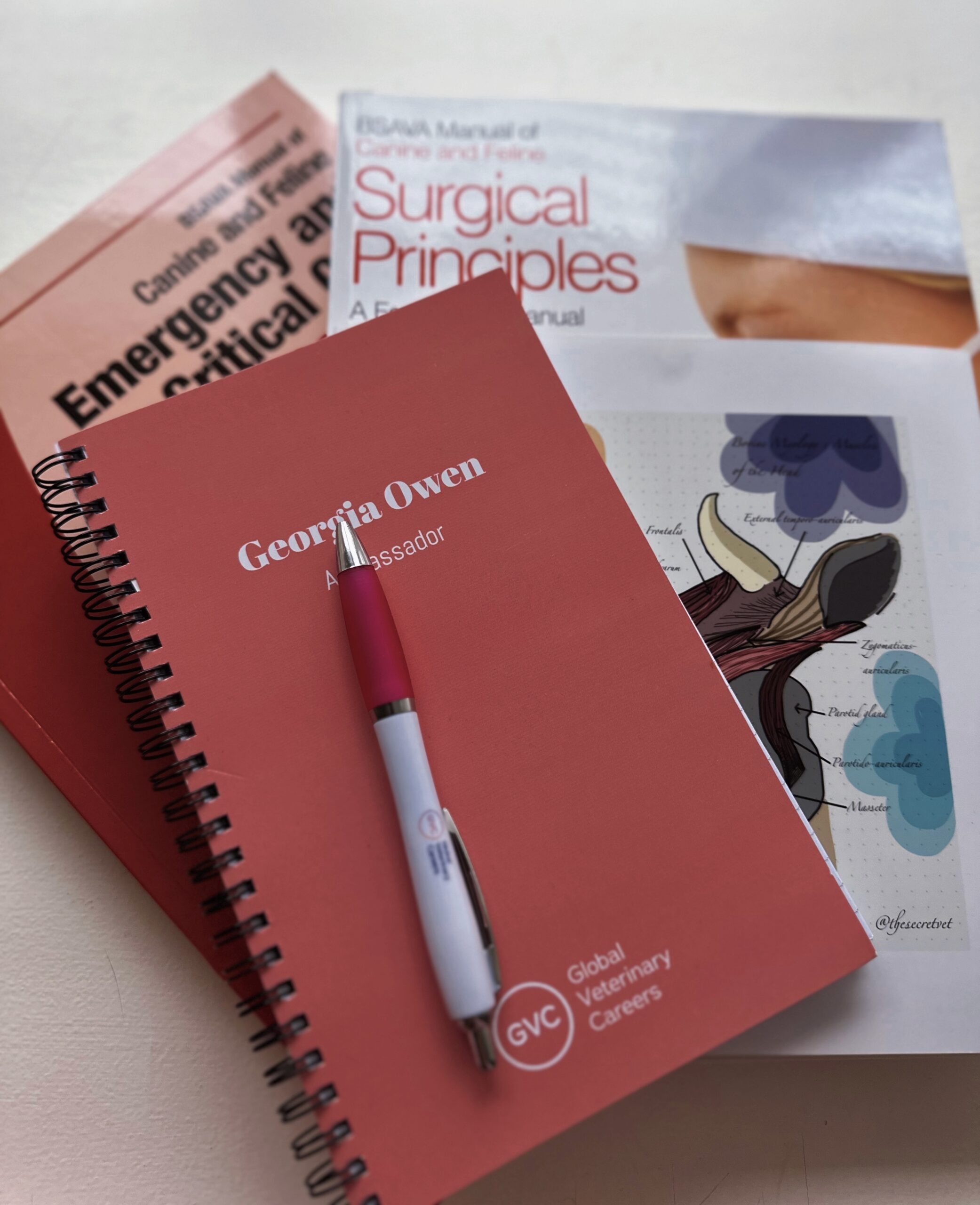Making the transition from pre-clinical to clinical years whilst at vet school can be challenging.
Suddenly, you shift from trying to remember endless amounts of anatomy and physiology to now having to apply that knowledge to clinical scenarios.
Suddenly, those drawings you made in first year on the anatomy of the equine distal limb are no longer just drawings, they are attached to a real, living breathing animal… and something is going wrong. There are more diseases, more drugs, more skills to learn and it can quickly become overwhelming.
I mean, who knew there were THAT many different flea and worming treatments on the market!
You get through exam season and your confidence is growing, you think to yourself … maybe being a real-life Vet won’t be so hard after all. Then, as swiftly as the day you were accepted into vet school you are thrown into your first ever clinical EMS placement.
Long gone are the days of tending to little lambs at all hours of the night, washing down the parlour after a morning milking or collecting eggs and popping to the pub after for a quick drink with the farmer. You now slip into your scrubs, or your waterproofs and steel toe cap wellies and head out for the day, stethoscope in hand.
Whether you have chosen to spend your days in a small animal practice helping wrestle small dogs for their nail clip, or out on the country roads heading towards an emergency cow caesarean, you will be faced with both the highs and lows of being a student on EMS.
One of the biggest lessons you will learn on very soon on is that despite how much you think you already know, there is always more to learn.
EMS is a unique opportunity for you to practice your skills in a controlled, safe environment without the pressure or responsibility of ‘getting it right first time’. It’s not going to be easy, in fact it’s supposed to be difficult.
You wouldn’t expect to pick up a new sport, or a musical instrument for the first time and be a professional in a matter of seconds. It is important that students try and apply this theory to their clinical placements as well.
We are humans, and humans make mistakes.
We all blow catheters, say the wrong drug name, forget where the vet-wrap is kept and walk around the practice for 10 minutes frantically searching every cupboard…and that’s fine.
Don’t get me wrong, Vet Students are normally all perfectionists and being anything other than perfect, or ‘Exceptional’ can be uncomfortable and take some getting used to. So, if you are scrolling on Instagram on your lunch break and you see your friend has just completed a solo dog castrate or helped correct an LDA on their first try, just remember that learning isn’t a competition.
You have worked hard to be where you are now, and no one can take that away from you.
Share the wins, but also the failures as those are equally, if not more, important.
You have a long road ahead and even chatting to recently qualified vets, you will soon see that the profession is never perfect, and that’s what makes it so rewarding.
Written by Georgia Owen, Fourth Year Vet Student at The Royal Veterinary College (RVC)



